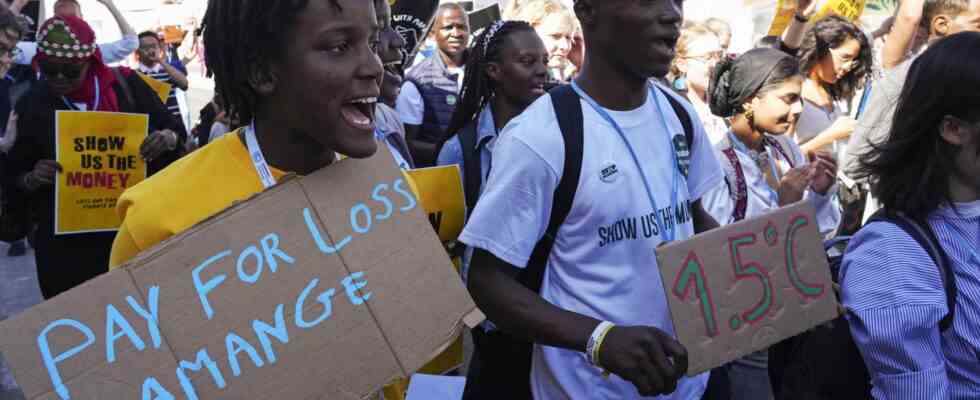Status: 11/20/2022 11:52 a.m
The final protocol of the world climate conference in Egypt disappoints many. Although states that are suffering severely from global warming are to be given financial help, there are no plans to phase out fossil fuels.
It’s already getting light outside. Shortly after morning prayers, the countries at the world climate conference agree on a final text. The highlight: A fund for the damage and losses caused by the consequences of climate change.
“I don’t hear any objections. Then it’s decided.” When the widely criticized President of the World Climate Conference, Egypt’s Foreign Minister Samih Schukri, dropped the hammer, there was much applause. Especially from the most vulnerable countries in the Global South. They had been demanding such a pot of money for around 30 years.
Christoph Bals from the environmental protection organization Germanwatch believes that Germany has also achieved a great deal: “That was really a giant step.” According to Bals, it was a strong diplomatic achievement that countries like the USA, which had massively blocked this for 15 years, that Japan, the EU and France, which had always been the brakes, went along with it.
Detailed questions are to be clarified next year
Now the pot has to be filled with money, says Bals. This should help those who suffer particularly badly from the consequences of climate change – for example from tropical storms or heat waves. Who should pay into the pot? This could soon include China. The country with the highest greenhouse gas emissions per year, which is still officially one of the emerging countries. Ultimately, a committee should clarify detailed questions like these in the coming year.
However, this breakthrough cannot hide the fact that something essential is missing from the final paper. Above all, the phase-out of coal, oil and gas. A huge disappointment for Harjeed Singh from the environmental protection umbrella organization Climate Action Network. Certain countries prevented the exit: “Of course the OPEC countries, for which oil and gas remain the main source of income,” said Singh, for whom it was a red line. “At the same time, we saw the EU and the US mentioning an exit but not fighting.” For Singh, it was just “lip service”: “You made statements but never really fought hard.”
Baerbock reprimands the organization in Egypt
Depressing – according to environmental organizations. According to Greenpeace Germany boss Martin Kaiser, climate protection has been torpedoed by countries like Saudi Arabia – with the help of the Egyptian conference presidency. Federal Foreign Minister Annalena Baerbock speaks of a weak organization with regard to the host country.
And the graduation paper? It didn’t get the maximum out of it. “It was surprising that it was going to be so difficult, because the G20 countries had actually just positioned themselves on the 1.5-degree path,” said Baerbock. “This is a result of hope but also of frustration because we have been challenged by some countries to do things that we had already achieved. We all know that we need to more than redouble our efforts.”
EU Commission chief Timmermans is disappointed
The Vice-President of the European Commission, Frans Timmermans, doesn’t think it’s enough when he talks about the document: “It doesn’t give us any more confidence that we can achieve the commitments made in the Paris Agreement and in Glasgow last year. It doesn’t speak the huge gap between climate research and climate policy. The EU came here so that we could agree on strong statements and we are disappointed that we didn’t manage to do that.”
The final paper from the climate conference in Sharm El-Sheikh is not a step backwards, but it is not a great leap forward either. It remains just a triple step in a process that will determine the future of our planet.
Conclusion of the world climate conference
Lena Petersen, SWR, currently Sharm El-Sheikh, 20.11.2022 10:46 a.m

